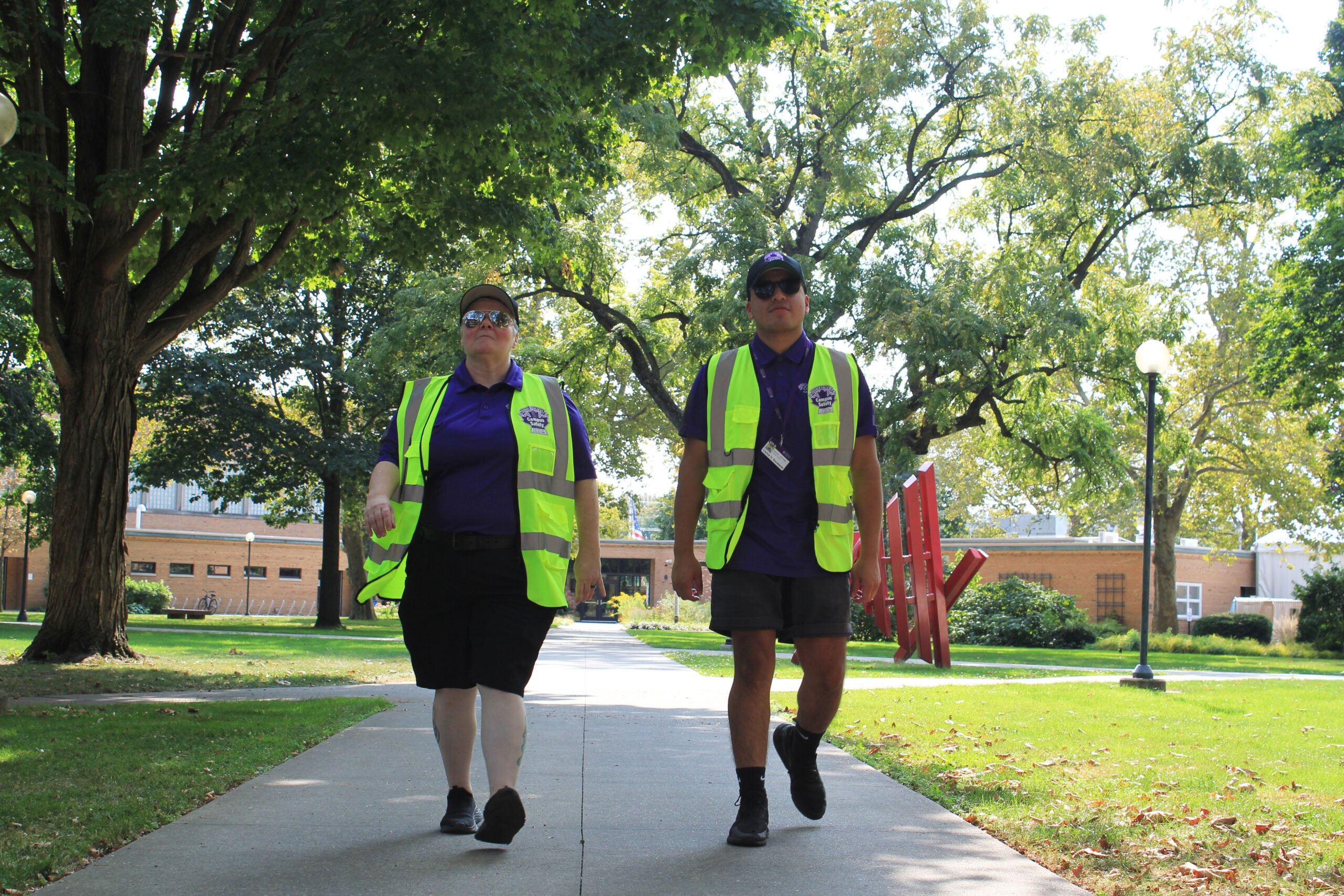September is National Campus Safety Awareness Month and the campus safety staff at Goshen College are using the opportunity to promote student safety with various tips and activities.
Chad Coleman, director of campus safety, explained that September was designated as Campus Safety Awareness Month by Congress back in 2008, but that this is the first year GC is using the designation in their promotions. Coleman said, “[f]or me every month is Campus Safety Awareness Month — but this year we decided to recognize [it] as part of some greater program and awareness initiatives. It seemed timely and apt.”Kris Polega, campus safety officer, explained that the planning process has taken a slow and steady approach to making sure everything is ready.
“We started to put [the month] together at the end of last semester … [but] just last month we started to talk a little bit more in all of student life about promoting Campus Safety Awareness Month,” Polega said.
One notable activity offered this month will be a self-defense class led by Polega. She has a black belt in Tae Kwon Do and used to work at the Peacemaker’s Academy in Goshen before it closed, a local non-profit that helped to teach children nonviolent communication skills. Coleman shared that “[Polega’s] done workshops like this before so we are excited to have her lead one for our students.”
The opportunity was in part thanks to a collaboration with Emily Hahn, project director for the Department of Justice and Office on Violence Against Women’s Campus Program grant. She shared, “We have been working closely to ensure that our Campus Safety initiatives align with best practices and serve our community well.”
As far as the self-defense class goes, Hahn stated, “I really appreciate Kris’ perspective and approach, and I’m excited for her to bring her expertise to our campus … I’ve seen Kris’ work and passion, and I know that everyone can learn something about defusing potentially dangerous situations from her.”
Polega said she hopes the class will address not only mental health topics such as “empowerment, finding your voice for people who have a hard time doing that … [and] learning tips and tricks for staying safe even in a verbal argument,” but also about more physical skills such as “awareness of your body, and body mechanics — how, no matter what your size or stature, you can keep yourself safe physically.”
However, self-defense lessons aren’t the only safety focus as September continues. Coleman has already been sharing his “Campus Safety 101” insights in the Communicator, including topics such as “railway safety” and “tips for staying safe on campus.”
While it can be hard to gather data around month-long initiatives such as this one, both Coleman and Polega shared that one measurable fact they feel would make the biggest difference to safety on campus is the push to stop propping open locked doors.
Coleman said, “I also can’t stress enough the simple yet crucial habit of locking their residence hall rooms or apartments when they’re not home or asleep — it’s the easiest way to enhance their personal safety.” He also explained that this is an issue where students must work together to make change, saying, “I urge [students] to hold each other accountable when it comes to propping open locked doors on campus. We’ve seen footage of students wedging doors open, and others coming across them and leaving them that way. This compromises everyone’s safety, and it’s a shared responsibility to prevent it.”
In addition to pushing for safety changes, the campus safety team has also been making an effort to connect with students, going so far as to set up a table at the dining hall to promote campus safety resources.
Both Polega and Coleman emphasized that campus safety is here to support students, not just to act as some form of discipline. “For us, because we aren’t police officers, [our role] is ‘community caretaking,’” Coleman said.
Along the same lines, Polega shared that she and other campus safety staff are looking to change some aspects of student perception. “We are trying to present ourselves as people who really do care — I think in the past campus safety has just been seen by students as ‘oh they are out to get us,’” Polega said. She continued, “We really just want to keep people safe in every facet whether it be emotionally, physically, mentally, spiritually even.”




